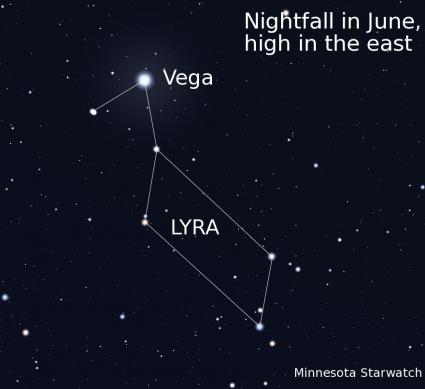Points North: We Need A Salesman To Lead The DNR
-
Fri, 12/10/2010 - 6:32am
Tweet
| Attachment | Size |
|---|---|
| Finalcut_PN_20101203.mp3 | 5.39 MB |
While we still aren’t sure who will be our next governor, some are already speculating about who our incoming leader will appoint to lead the Minnesota DNR. Whoever gets the job hopefully has a skill we don’t often associate with the DNR commissioner’s office: salesmanship.
While the DNR is presently in decent shape and free from major controversy, stormy waters lie ahead. The state is in desperate financial straits. A new Republican majority in the Legislature must find ways to further reduce and eliminate state services, and come up with enough cash to keep the state afloat. In both respects, the DNR, though a small fraction of the state’s budget, may be especially vulnerable to fiscal politicking.
For starters, the DNR administers millions of acres of lands ranging from state forests to parks and wildlife areas. Already within the Legislature is a movement to place a moratorium on new state land acquisition and possibly sell off some state properties. It will take a salesman to convince politicians that the state’s wealth of land is an economic asset providing recreational opportunities for millions of citizens, raw material for the timber industry and more. Equally important, while a case can be made for selling off some state holdings, stopping the acquisition of additional lands is a short-sighted policy and contrary to the intent of the Legacy program funded with state sales tax revenues.
Speaking of policy, some in the Legislature are saying the best way to spur the economy is to deregulate, supposedly to benefit businesses overburdened with red tape. While anyone who has experienced the state permitting process on just about any level will agree there is plenty of room for user-friendly improvements, we don’t need to toss the baby out with the bathwater. The commissioner must convince politicians that strong protection for our lands and waters is vital to the state’s long-term well-being, while selling DNR staff on improving customer service.
Another sales job is the promotion of hunting and fishing. With the exception of deer and turkey hunting, participation in hook and bullet activities is either stagnant or in decline. Fishing license sales fall short of fish management expenditures, with the difference made up using deer license revenues. While no one wants to talk about it, it is apparent that fish and wildlife management efforts are slowly diminishing, too. If you look to Minnesota’s east, where most states have few game species other than human-tolerant deer and turkeys, state fish and wildlife agencies are significantly smaller and less effective than our DNR.
So the commissioner will have to find news ways to sell hunting, fishing and the appreciation of all wildlife, with the intent of increasing public participation, because the present sales effort isn’t working well enough to meet the agency’s bottom line. Simply put, we can’t afford to continue falling short with fishing license sales and still support diverse fisheries programs. Reviving interest in small game or duck hunting may prove especially challenging, due to diminishment of quality hunting opportunities and competition from relatively new, concurrent deer and turkey hunting seasons.
For enforcement, the commissioner will have to sell politicians on the need to maintain a full complement of conservation officer field positions. Doing so was a priority and an accomplishment for former Commissioner Gene Merriam, but once again the list of vacant field stations is growing. Hiring and training new officers isn’t cheap, but the cost will increase as more officers retire or take other positions. The commissioner must convince decisionmakers that hiring more officers is a prudent investment, even in hard times.
While the commissioner can’t kick-start the housing market and thus revive Minnesota’s struggling timber industry, selling the benefits of sound forest management is an ongoing task. Ditto for the management of our mineral resources, another DNR responsibility. While timber production and mining are largely unrecognized beyond the areas of the state where they occur, both are vital to our overall economic health. Focusing political and public attention on these sectors is strong step in the right direction for economic recovery.
How can a commissioner go about selling the DNR and its mission to politicians and the people? Perhaps the best example of a successful salesman within the agency is Carroll Henderson, long the leader of the Nongame Wildlife Program. In many ways, the program was an illegitimate stepchild within the agency, strapped for funding because nongame species don’t generate license revenues and receiving limited agency support for the same reason. But Henderson became the champion for nongame wildlife, finding ways to raise visibility for the critters in the media and coming up with creative options, such as sales from books he published through the DNR, to raise money for the program. His enthusiasm—call it salesmanship—legitimized the program and fostered public support and appreciation for songbirds, backyard wildlife and other nongame species.
Could an enthusiastic commissioner do the same for the DNR? It won’t be easy. The bureaucracy is set in its ways and used to hunkering down when a new commissioner arrives, knowing its corps of civil service employees will outlast the term of its politically appointed leader. Political and public negative attitudes toward the agency are equally entrenched and difficult to overcome. If that isn’t enough, the commissioner will have to compete with education, health care, transportation and other interests for the attention of the governor and the Legislature. But a commissioner who has enthusiasm and salesmanship has a much better chance of succeeding in such an environment than one who does not.
Airdate: December 10, 2010
Tweet






